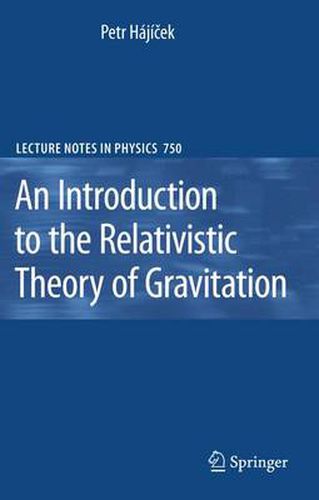Readings Newsletter
Become a Readings Member to make your shopping experience even easier.
Sign in or sign up for free!
You’re not far away from qualifying for FREE standard shipping within Australia
You’ve qualified for FREE standard shipping within Australia
The cart is loading…






This title is printed to order. This book may have been self-published. If so, we cannot guarantee the quality of the content. In the main most books will have gone through the editing process however some may not. We therefore suggest that you be aware of this before ordering this book. If in doubt check either the author or publisher’s details as we are unable to accept any returns unless they are faulty. Please contact us if you have any questions.
The contemporary theoretical physics consists, by and large, of two independent parts. The rst is the quantum theory describing the micro-world of elementary p- ticles, the second is the theory of gravity that concerns properties of macroscopic systems such as stars, galaxies, and the universe. The relativistic theory of gr- itation which is known as general relativity was created, at the beginning of the last century, by more or less a single man from pure idea combinations and bold guessing. The task was to marry the theory of gravity with the theory of special relativity. The rst attempts were aimed at considering the gravitational potential as a eld in Minkowski space-time. All those attempts failed; it took 10 years until Einstein nally solved the problem. The dif culty was that the old theory of gravity as well as the young theory of special relativity had to be modi ed. The next 50 years were dif cult for this theory because its experimental basis remained weak and its complicated mathematical structure was not well understood. However, in the subsequent period this theory ourished. Thanks to improvements in the te- nology and to the big progress in the methods of astronomical observations, the amount of observable facts to which general relativity is applicable was consid- ably enlarged. This is why general relativity is, today, one of the best experimentally tested theories while many competing theories could be disproved. Also the conc- tual and mathematical fundamentals are better understood now.
$9.00 standard shipping within Australia
FREE standard shipping within Australia for orders over $100.00
Express & International shipping calculated at checkout
This title is printed to order. This book may have been self-published. If so, we cannot guarantee the quality of the content. In the main most books will have gone through the editing process however some may not. We therefore suggest that you be aware of this before ordering this book. If in doubt check either the author or publisher’s details as we are unable to accept any returns unless they are faulty. Please contact us if you have any questions.
The contemporary theoretical physics consists, by and large, of two independent parts. The rst is the quantum theory describing the micro-world of elementary p- ticles, the second is the theory of gravity that concerns properties of macroscopic systems such as stars, galaxies, and the universe. The relativistic theory of gr- itation which is known as general relativity was created, at the beginning of the last century, by more or less a single man from pure idea combinations and bold guessing. The task was to marry the theory of gravity with the theory of special relativity. The rst attempts were aimed at considering the gravitational potential as a eld in Minkowski space-time. All those attempts failed; it took 10 years until Einstein nally solved the problem. The dif culty was that the old theory of gravity as well as the young theory of special relativity had to be modi ed. The next 50 years were dif cult for this theory because its experimental basis remained weak and its complicated mathematical structure was not well understood. However, in the subsequent period this theory ourished. Thanks to improvements in the te- nology and to the big progress in the methods of astronomical observations, the amount of observable facts to which general relativity is applicable was consid- ably enlarged. This is why general relativity is, today, one of the best experimentally tested theories while many competing theories could be disproved. Also the conc- tual and mathematical fundamentals are better understood now.